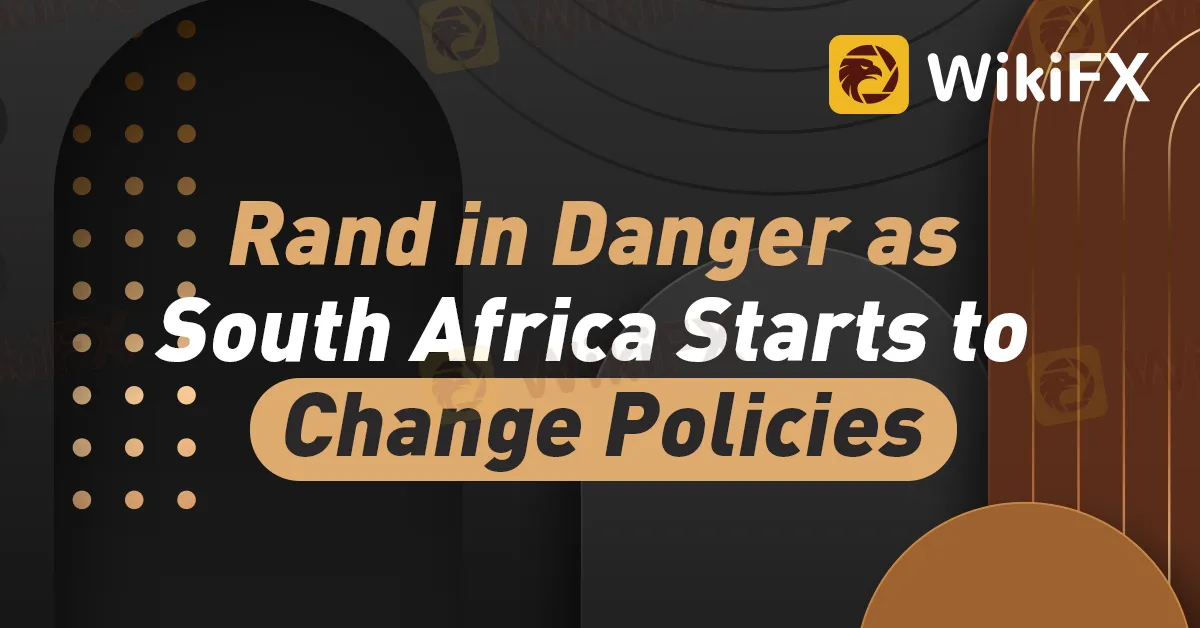简体中文
繁體中文
English
Pусский
日本語
ภาษาไทย
Tiếng Việt
Bahasa Indonesia
Español
हिन्दी
Filippiiniläinen
Français
Deutsch
Português
Türkçe
한국어
العربية
Rand in Danger as South Africa Starts to Change Policies
Abstract:The rand may become more volatile if the South African central bank changes how its monetary policy is carried out.

The rand may become more volatile if the South African central bank changes how its monetary policy is carried out.
Beginning on Wednesday night, the central bank will switch from its present deficit setup to a surplus one, allowing commercial banks to keep and earn interest on excess reserves. Similar to the “layered floor” system utilized by the Reserve Bank of New Zealand and the Norges Bank, the South African Reserve Bank will likewise implement measures to discourage banks from hoarding liquidity and so assist in maintaining an interbank money market.
The adjustment won't have an impact on the central bank's inflation objective or interest rate choices, but it may make it simpler to speculate in the rand, leading to greater price swings under pressure. Since the epidemic, the cost of shorting the South African rand has increased due to elevated ZAR-USD basis-swap rates.
The currency basis would decrease, making it more affordable to short the rand, said Michelle Wohlberg, a fixed-income analyst at Rand Merchant Bank located in Johannesburg. “Risk-off periods may become volatile as a result of this.”
The rand has been less volatile this year than a number of its peers, such as the lira, zloty, and real, despite pressure on risk assets brought on by fears about a slowdown in China, increasing global inflation, tighter policy, and Russia's conflict with Ukraine. The currency's historical correlation to the dollar has increased by 63 basis points to 14.66 percent, making it the fifth most volatile of the 23 developing-nation currencies tracked by Bloomberg.
The Reserve Bank stated that mitigating the risk would need “care and monitoring,” both during the transition to the new framework and in times of extreme market pressure, in a report that addressed worries about volatility. The first developing market economy to use the tiered-floor framework is South Africa.
It stated that the risk was considered to be “moderate” and did not pose a significant challenge to the idea of the new framework for implementing monetary policy. In contrast to mature nations that have floor-style systems, South Africa may experience the exchange rate differently due to its status as an emerging market.
According to the study, the central bank “has a lengthy track record of tolerating FX volatility” and inflation expectations are anchored, making them less vulnerable to exchange rate changes.

Disclaimer:
The views in this article only represent the author's personal views, and do not constitute investment advice on this platform. This platform does not guarantee the accuracy, completeness and timeliness of the information in the article, and will not be liable for any loss caused by the use of or reliance on the information in the article.
Read more

Top 10 Trading Indicators Every Forex Trader Should Know
Master the top 10 Forex trading indicators to analyze real-time Forex quotes, trends, and market signals. Learn strategies to boost accuracy and avoid mistakes.

WikiEXPO Global Expert Interview: Simone Martin—— Exploring Financial Regulation Change
In the midst of financial innovation and regulation, WikiGlobal, the organizer of WikiEXPO, stays abreast of industry trends and conducts a series of insightful and distinctive interviews on pivotal topics. We are delighted to have the privilege of inviting Simone Martin for an in-depth conversation this time.

MultiBank Group Wins Big at Traders Fair Hong Kong 2024
Discover how MultiBank Group, a global leader in financial derivatives, secured three prestigious awards at Traders Fair Hong Kong 2024, highlighting its innovative trading solutions and industry excellence.

CySEC Settles Compliance Case with Fxview Operator Charlgate Ltd
Discover how CySEC resolved compliance issues with Charlgate Ltd, the operator of Fxview, through a €50,000 settlement. Explore the investigation, regulatory measures, and CySEC's new website designed for improved accessibility and transparency.
WikiFX Broker
Latest News
Volkswagen agrees deal to avoid Germany plant closures
Geopolitical Events: What They Are & Their Impact?
Top 10 Trading Indicators Every Forex Trader Should Know
TradingView Launches Liquidity Analysis Tool DEX Screener
MultiBank Group Wins Big at Traders Fair Hong Kong 2024
WikiEXPO Global Expert Interview: Simone Martin—— Exploring Financial Regulation Change
'Young investors make investment decisions impulsively to keep up with current trends' FCA Reveals
Why Do You Feel Scared During Trade Execution?
CySEC Settles Compliance Case with Fxview Operator Charlgate Ltd
Malaysian Influencer Detained in Taiwan Over Alleged Role in Fraud Scheme
Currency Calculator


